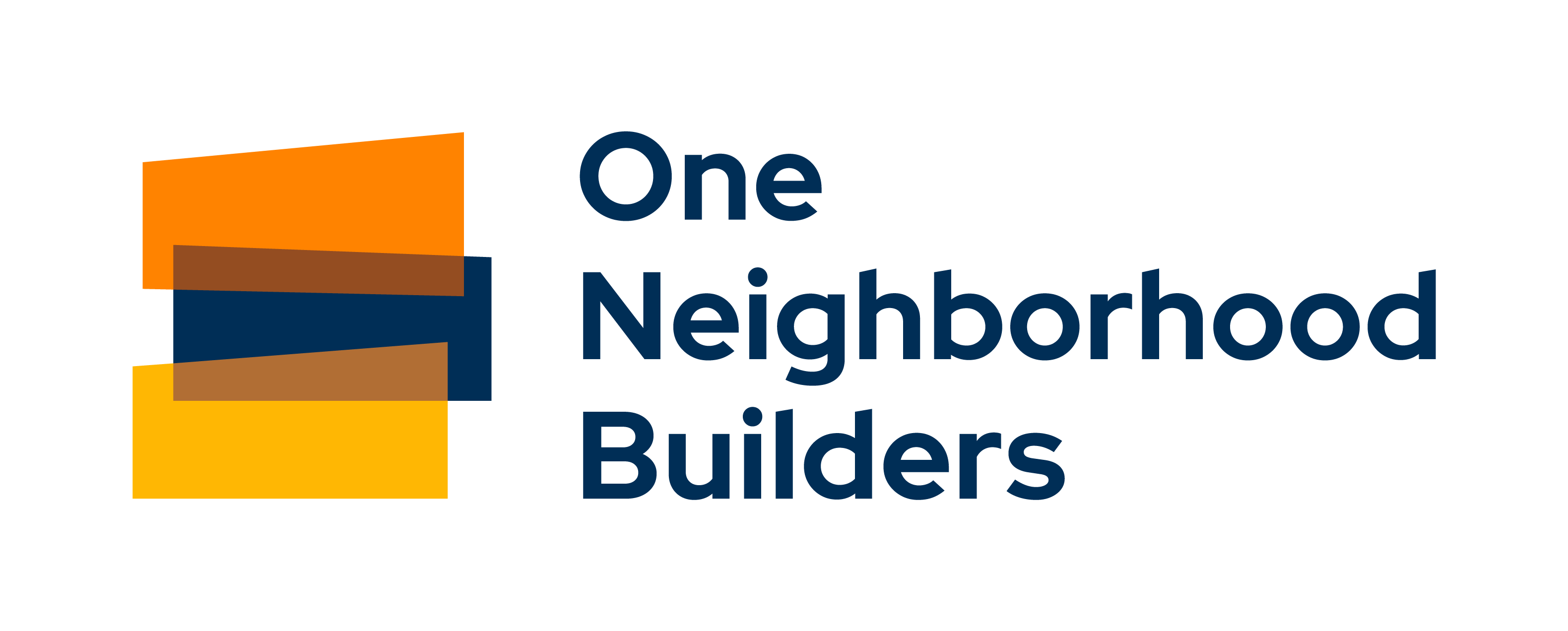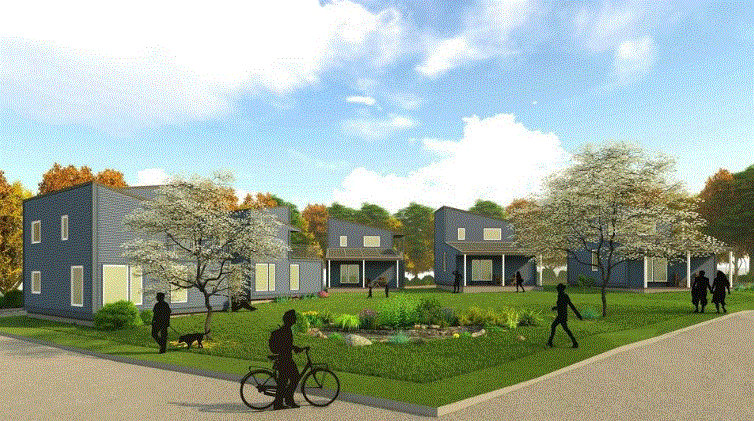PROVIDENCE, RI – Community-based developer, ONE Neighborhood Builders, is beginning construction on a zero-energy, small home community this fall. The Sheridan Small Homes project will bring five new, very affordable, “passive”, compact homes to the Olneyville neighborhood of Providence. The project was originally posed as a challenge by ONE Neighborhood Builders to Rhode Island School of Design (RISD) students in professor and architect Jonathan Knowles’ studio to address issues of increased housing unaffordability and climate change. The selected designs are now ready for construction.
“By building smaller we are consuming less resources: land, materials, energy and financial support,” said Jennifer Hawkins, Executive Director of ONE Neighborhood Builders. “At 825sf, these two-bedroom, 1.5 bathroom homes, adjacent to the park and bike path, will be striking additions to the urban landscape, while remaining very affordable for prospective buyers.”
“The Sheridan Small Homes project strengthens our Olneyville neighborhood and surrounding communities by creating greater affordable housing options at a reduced impact to our environment,” said Mayor Elorza. “This project is part of our RePowerPVD Race to Zero Challenge, where participants strive to develop the first energy-zero buildings in the City as a way to help Providence meet its ambitious climate goals and we look forward working with partners to create more sustainable, affordable housing opportunities for residents in the future.”
Innovative design elements and materials give the homes their passive qualities. Siting to maximize solar gain, triple glazed windows, advanced framing techniques, thick walls with layered mineral wool and blown-in fiberglass insulation, an advanced high efficiency energy recovery ventilation system, and high R-value building envelope with minimum air infiltrations all work to significantly reduce the home’s energy consumption. To provide that energy, homes will be equipped with photo-voltaic solar panels sized to produce slightly more energy than the homes consume.
The homes will be constructed as a training program of Providence-based not-for-profit Building Futures, an organization that meets industry need for skilled workers through the Registered Apprenticeship system while creating high-wage career opportunities for low income adults.
“Our partnership with ONE Neighborhood Builders on this project is a tremendous opportunity to extend the impact of each agency” said Andrew Cortes, Executive Director of Building Futures. “Sheridan Small Homes has a powerful multiplying effect in our neighborhoods: affordable homes with a lasting positive environmental impact, built by individuals that gain skills needed to launch their family-sustaining careers and change their lives.”
The groundbreaking event will be held on October 28th at 10:30am where U.S. Senator Jack Reed will share his words of support for the project. Senator Reed remarked, “Creating more affordable housing must be a priority, and ONE Neighborhood Builders is undertaking an innovative new project to do just that. Their Sheridan Small Homes project provides residents with high-quality, energy efficient homes. It also contributes to the revitalization of the neighborhood and gives our future builders the opportunity to develop new skills through the Building Futures apprenticeship system.”
Also in attendance will be General Treasurer Seth Magaziner, Providence City Council President Sabina Matos, Director of the City of Providence’s Planning and Development Department, Bonnie Nickerson, and the Executive Director of RIHousing, Carol Ventura. “RIHousing is proud to be supporting the development of these five homes,” said Ms. Ventura. “We launched the Homeownership Investment Fund last year to spur the construction of workforce housing; this is our first “HIF” project to break-ground and we look forward to supporting the expansion of this important model of housing.”
Building Community through Homes, Health and Opportunity. ONE Neighborhood Builders accomplishes its mission through strategic real estate development to expand affordable housing and spur economic development; engaging residents and community organizations to build trust and collectively problem-solve; and development of individuals’ personal financial capabilities so that they may realize their asset building goals.


